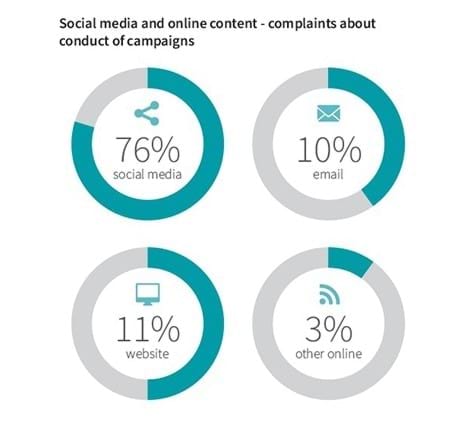- Date:
- 26 Aug 2021
Welcome to the winter edition of our integrity matters newsletter.
While this edition finds COVID-19 restrictions imposed across the state, I hope that as the weather starts to warm up and case numbers stabilise, we are able to move towards reduced restrictions.
Even though local government may have 'closed its doors' or reduced in-person services during lockdown, the important work of the sector continues with the delivery of the vast array of council services. Trying to find a silver lining to the COVID cloud is hard but with the rise of digital meeting platforms (expertly navigated by primary school kids) and the shift of ‘public’ meetings from Town Halls to computer screens, the opportunity for the community to observe the work and ask informed questions of council has never been greater.
This newsletter looks at some responsibilities councillors and senior staff have in maintaining public trust in their council. We will soon release a wide-ranging review on councillors’ personal interest declarations and preview what this report covers.
Our review of campaign donation returns found that the number of candidates who failed to submit their return halved in 2020 compared to 2016. Meanwhile, as South Gippsland gears up for its elections, we remind candidates to be respectful of how they behave on social media.
We also discuss how conflict of interest provisions have changed with the new Local Government Act and what it means to those having to declare interests – both councillors, nominated officers and key council staff.
Finally, we look at the rising number of unreasonable or vexatious complaints the Inspectorate is receiving and remind councils and the public that we are not able to investigate complaints that are outside our jurisdiction.
I look forward to having the opportunity to get out and meet more of you in person soon. In the meantime, please ensure that you look after yourself.
Michael Stefanovic AM
Chief Municipal Inspector
Conflict of interest: what's changed
The definition of conflict of interest changed under the new Local Government Act 2020 with the goal of simplifying provisions so they are easier to understand and apply.
Conflict of interest is generally understood to mean when there is a conflict of interest between someone’s personal and civic life, the person with a potential conflict must disclose the interest and not participate in the decision-making process.
The provisions under the Local Government Act 1989 set out exactly what it covered. However, people covered by the new conflict of interest provisions must:
- consider a broader range of interests
- consider what an impartial fair-minded person would think.
The intent of the new law is to move from a compliance approach to a principles-based approach with integrity and transparency as the foundations of public office.
For example, the prescriptive approach of the old conflict of interest provisions did not cover a conflict due to a friendship but the new provisions might, depending on the circumstances.
The provisions apply to:
- councillors
- members of delegated committees who are not councillors
- council staff who are members of or providing advice to delegated committees or asset committees
- council staff who are exercising a delegation, delegated function or statutory power.
Local Government Professionals Victoria (LGPro) runs training programs and events which cover conflict of interest to help local government officers understand their obligations under the Act, including a comprehensive Introduction to Local Government workshop.
LGPro President and Northern Grampians Shire Council CEO, Liana Thompson said: “The conflict of interest provisions in the new Local Government Act are far clearer than in the previous Act, giving the community much more transparency into their local government.
“From the officer’s perspective, we need to understand the privileged role that we hold as public servants. While there are times that these provisions don’t directly apply to officers, the intention still does, and good practice means really understanding the principles behind avoiding conflicts of interest.
“While it is not the officer’s place to give advice, we can really help councillors to ask the right questions to help them in their decision making here.”
LGI Operations Manager Ross Millard said: “It is vital that all relevant persons always serve public interest and separate their private interests from their public duty. Only then can the community have confidence in the impartiality of the decisions made by their council.”
More information about conflict of interest has been created in conjunction with the sector and is available on the Local Government Victoria website.
Unreasonable or vexatious complainants
Most complaints we receive are made in good faith. However, we have experienced an increase in the number of unreasonable or vexatious complainants contacting us in the past year.
Unreasonable requests include:
- persistent requests to find out how an investigation is progressing
- a complainant lodging repeated complaints because they fail to understand why their complaint has not been investigated or disagree with the outcome
- a complainant using their own misinterpretation of the Local Government Act to repeatedly question why a matter cannot be investigated.
Our office consists of skilled investigators who are experienced at assessing information to see if offences under or breaches of the Act have occurred. However, we are not able to investigate local government matters which are outside our jurisdiction.
We will always give advice to the complainant if a complaint should be taken to another body for investigation, such as Victoria Police or another integrity agency.
Since its inception in 2009, the Inspectorate has been contacted by many complainants who either ask us to reopen investigations or repeatedly submit the same complaint. Some examples of unreasonable complainant behaviour we see include:
- a complainant submitting up to six emails a day
- a complainant submitting more than 1,500 complaints in a year, most of which did not amount to offences under the Act.
Mr Stefanovic said: “Our remit to investigate under the Act is limited and currently, too much of our investigators’ time and resources are occupied dealing with requests to investigate matters that fall outside this remit, such as civil matters, council service issues or a breach of the code of conduct.
“Complainants need to exhaust all avenues in working with council to resolve and or respond to their issues and not in the first instance refer matters to the Inspectorate as their advocate.”
While other jurisdictions and agencies such as the Office of the Independent Assessor in Queensland can fine people up to $11,700 for making repeated frivolous or vexatious complaints, we currently prefer an education-based approach to resolving these matters. However, people who abuse or harass our staff will be referred to Victoria Police. Our complaints handling staff will continue to follow guidance from the Victorian Ombudsman on dealing with challenging behaviour.
Case study: repeated requests for investigation
A complainant submitted repeated requests for investigation on matters relating to an inner metropolitan council’s lease arrangements and contract tendering. The complainant had relied on their own interpretation of sections 186 and 190 of the 1989 Act as to the legality of council’s actions.
In responding to five separate complaints, our staff found no breaches of the Act had occurred and conveyed this to the complainant, along with the reasons why the council’s actions did not breach the Act.
After receiving an outcome letter on one matter, the complainant submitted a further 23 requests for the Inspectorate to investigate the same complaint that had already been closed. There was no suitable justification provided for the matter to be reopened.
Case study: misuse of complaints process to resolve internal disputes
Over an 11-month period, we received several complaints from two councillors at the same council, containing vague and unsubstantiated allegations against their fellow councillors and CEO.
Councillor A made three separate complaints, the majority of which related to matters that needed to be discussed or resolved internally as potential breaches of the council’s code of conduct policies. Despite being informed the reasons why we could not assist with their complaints, Councillor A continued to phone and email our staff up to 10 times a week but did not provide any new information to support their complaints.
Councillor B lodged seven complaints, including one complaint consisting of 10 separate emails and more than 120 pages of material, none of which adequately supported their multiple allegations of misconduct.
These complaints and responses by the complainants amounted to, at best, clear misunderstandings of the council’s complaint resolution process or at worst, an attempt to subvert that process and sow dissent amongst councillors.
Drop in candidates failing to submit campaign donation returns
The number of local government candidates failing to submit a list of donations or gifts received during the 2020 council elections has fallen by almost half since 2016.
In the 2020 council elections, 6.6 per cent of candidates failed to declare gifts or donations compared to more than 13 per cent in 2016, as detailed in our report into the 2020 council elections.
Candidates must submit a campaign donation return whether they receive any gifts, donations or in-kind support for their campaigns under section 306 of the Local Government Act 2020. They must also submit a return if they do not receive any donations or support.
The aim is to ensure ongoing integrity and transparency in the sector.
Elections that recorded the highest numbers of noncompliance.
The elections with the highest numbers of non-complying candidates were:
- Wyndham City Council – 25
- Hume City Council – 10
- Greater Dandenong City Council – 10
- Brimbank City Council – 9
- Boroondara City Council – 9
- Nillumbik Shire Council – 8
There were four candidates who did not submit a campaign donation return in both 2020 and in 2016.
Best-performing candidates
On a positive note, all candidates in 37 council areas submitted campaign donation returns. In addition, the following councils had high numbers of candidates who correctly all submitted campaign donation returns:
- Bayside City Council – 66
- Mornington Peninsula Shire Council – 43
- Manningham City Council – 41
- Greater Geelong City Council – 39
- Glen Eira City Council – 36
In 2020, a total of 2,042 candidates handed in a compliant return and 144 were considered non-compliant. We are following up with non-compliant candidates and will produce a report on the outcomes by early 2022.
Review of personal interest returns
A wide-ranging review of councillors personal interests’ declarations will be released soon.
The Inspectorate conducted a review of all councillor returns for 78 councils between October 2016 and February 2020. However, a review of Whittlesea councillors’ personal interests returns was conducted as part of a separate investigation and was not covered in the report.
Chief Municipal Inspector Michael Stefanovic AM said: “The Inspectorate, along with other integrity agencies, have identified that incomplete and inadequate personal interest disclosure is a historical and ongoing issue affecting the local government sector.”
Personal interests returns: Reducing conflicts and increasing transparency will reveal details about how many councillors submitted accurate returns in this period, what they failed to disclose and some of the reasons they gave for failing to make the disclosures.
Councillors and key council staff must provide – and regularly update - accurate records of their personal interests under the Local Government Act.
Transparency is vital to local government integrity and the requirement for councillors and key council staff to submit a full and accurate record of their personal interests is fundamental in achieving this goal.
Mr Stefanovic said: “Where personal interest disclosures are incomplete, it fails to safeguard against possible conflicts of interests and acting in the best interests of the community.
“We hope this report helps bring personal interest returns into the spotlight and leads to reforms that will strengthen compliance and transparency.”
The report will be published soon.
Warnings on social media use ahead of South Gippsland election
South Gippsland council will go to the polls in October – more than two years after the council was dismissed.
Candidate nominations open on Thursday 16 September with voting closing on Friday 22 October in the postal vote.
But a rise in complaints about social media activities by candidates and the community during the 2020 general council elections should serve as a warning.
The Inspectorate’s report on the 2020 council elections found that complaints about social media and online activities had tripled since 2016.
The report recommends that the Local Government Act 2020 be amended so that it specifically includes social media and other online or electronic publications.
During the general election period in 2020, we received 266 complaints relating to social media, rising from 78 in 2016. One in every three complaints was raised about content that was published online.
Of the complaints about social media, 76 per cent of complaints were about Facebook, 11 per cent were about websites, 10 per cent about email and 3 per cent about other online material.
Chief Municipal Inspector Michael Stefanovic AM said:
Social media is free and easy to use, consequently, it is a very popular place to campaign. However, regulation and limitations on content posting have been slow to occur.
The ability for people to set up anonymous or unauthorised political accounts may have allowed some candidates or campaigners to post false, misleading or abusive material in the council elections last year.
We saw examples of candidates blocking their opponent meaning that the tool which was touted as the champion of free speech was used to stop debate or stop the right of reply.
“We urge candidates and the wider community in South Gippsland to act courteously to each other online and remember that they are responsible for their actions online,” Mr Stefanovic said.
South Gippsland Shire Council was dismissed by an Act of Parliament in June 2019 after the resignation of six councillors between September 2018 and the dismissal.





